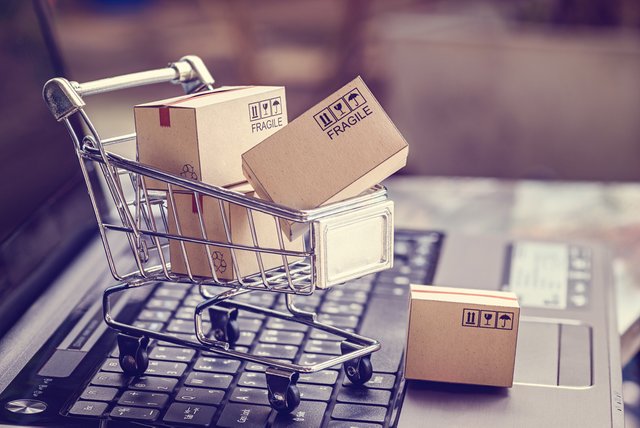
Blockchain can disrupt e-commerce, making it more affordable for vendors and fairer for consumers. How? Let’s consider the example of Amazon as if it operates in the blockchain-driven environment.
How Merchants Get Only a Fraction of the Pie
Possibly, as a consumer, you don’t really pay attention to how e-commerce works behind the scenes. You buy something on Amazon, pay the price and wait for the purchased item. If it doesn’t work properly, you will be refunded. At each of these steps, you’re sure that Amazon will fulfill its obligations, otherwise you can easily return your money. The only thing that can annoy you is massive advertising arranged around your private data.
However, when it comes to vendors, Amazon preys on them by charging big fees. It costs $39.99 per month for the PRO plan targeted at big-scale sellers, or $0.99 per a sold item in case of individual vendors. Moreover, Amazon charges an extra fee that can vary from 6% to 25% of the big sellers’ turnover, or $0.45-1.35 per an item sold by an individual.
Also, the platform doesn’t pay out revenues instantly. Instead, it postpones payments to its vendors for at least 2 weeks, for a maximum of 3 months. All this considered, if Amazon detects any violations on a vendor’s side, it blocks this vendor’s account with all the money in it, reserving the right to explain this decision only vaguely.
In the light of today’s highly monopolized market, when 41% of e-sales are made through Amazon, such terms don’t seem bad. However, if there were more competitors on the market, merchants can choose much better cooperation terms.
Lower Fees: New Reality with Blockchain
How low can be fees if no intermediaries are required? With a blockchain-based public ledger, they can be low enough to create a competitive environment. With its bandwidth, blockchain can cost-effectively process thousands of operations per second. With its witness nodes, the technology can disintermediate e-commerce and, thus, reduce vendors’ fees.
Risk-free and Disintermediated Transactions
Why does e-commerce need intermediaries? Mainly, it’s to guarantee the fulfillment of obligations by all the parties. On the one hand, each e-commerce platform promises consumers that a vendor will send them an order of the appropriate quality, and do it timely. On the other hand, it guarantees vendors that they will get their money once the consumer gets the order. While the vendor fulfills her liabilities before the consumer, the platform keeps the paid money in its own account, thus acting as an intermediary.
Blockchain can replace intermediaries with its smart contracts. Once a consumer pays the e-store for a product, the smart contract automatically sends the order to the vendor. Then, once the vendor dispatches this order to the consumer, the latter can track order delivery step by step and in real time. Once the consumer receives the order, the platform gets automatically notified and triggers payment to the vendor.
Ready-to-use blockchain ecosystems, such as genEOS, are the ones that accelerate development of such e-commerce platforms. With preconfigured smart contracts and more critical elements of the blockchain architecture, they are set to make the coming of blockchain to e-commerce faster and easier.
Keeping Tabs on Cooperation Integrity
Those businesses collaborating with Amazon know that if any violations are detected, the platform can easily block their account without the possibility to withdraw any funds left. The biggest issue is that such vendors have no chance of filing an appeal.
Blockchain can manage this process in a more transparent way. Smart contracts can detect any violations and suspend a partner’s activity until violations are corrected. Only in case when during the designated time no changes are made, smart contracts will automatically block the partner’s account.
This way, vendors will have the opportunity to adapt their businesses to the e-commerce platform’s requirements, and the blockchain-led system will check this automatically, with no arbitrary decisions on the platform’s part possible.
What About Privacy?
In 2018, the EU General Data Protection Regulation entered into force. It protects Internet users from having their personal data misused. However, there are no guarantees that everyone fully complies with the law in practice.
In its turn, blockchain not only encrypts data but secures it from unauthorized access inherently. Being decentralized, the technology is close to impossible to hack. So users served by a blockchain-powered platform can be sure that their data is kept securely.
Takeaways
- While ensuring against counterparty risks, digital marketplaces like Amazon charge enormous fees from their vendors. Blockchain could cut these fees and make cooperation both cost-efficient and ultimately transparent for everyone through the use of smart contracts.
- Blockchain can guarantee private data security with no unauthorized access allowed.